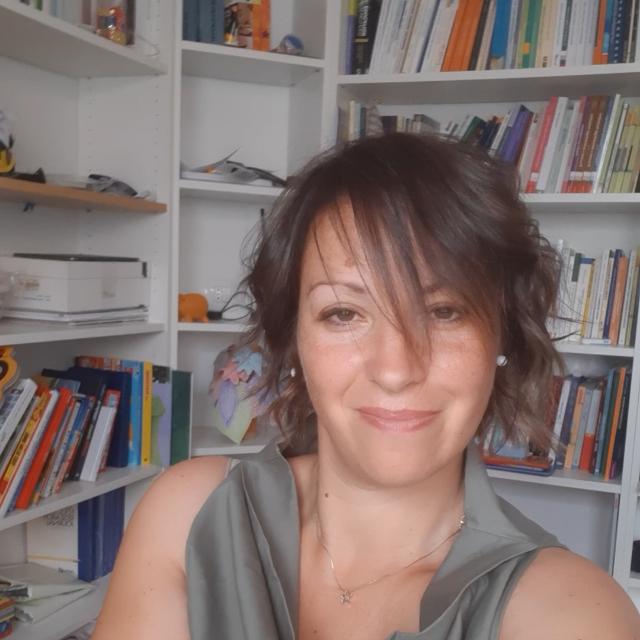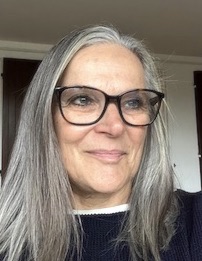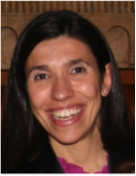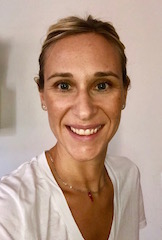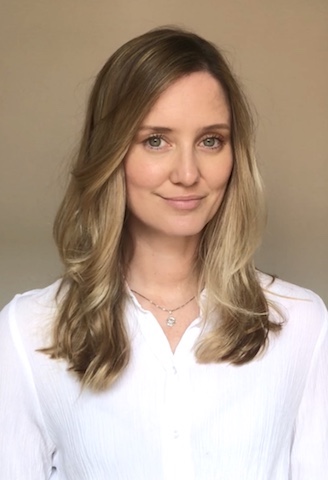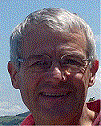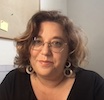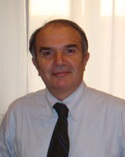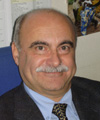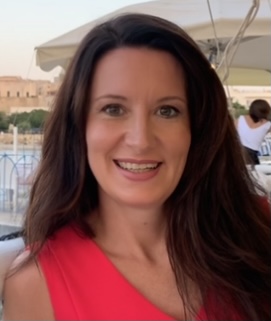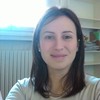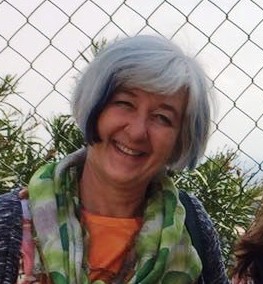Studying at the University of Verona
Here you can find information on the organisational aspects of the Programme, lecture timetables, learning activities and useful contact details for your time at the University, from enrolment to graduation.
Academic calendar
The academic calendar shows the deadlines and scheduled events that are relevant to students, teaching and technical-administrative staff of the University. Public holidays and University closures are also indicated. The academic year normally begins on 1 October each year and ends on 30 September of the following year.
Course calendar
The Academic Calendar sets out the degree programme lecture and exam timetables, as well as the relevant university closure dates..
| Period | From | To |
|---|---|---|
| Sem. 1A | Sep 27, 2021 | Oct 30, 2021 |
| Sem. 1B | Nov 15, 2021 | Dec 18, 2021 |
| Sem. 2A | Feb 21, 2022 | Mar 26, 2022 |
| Sem. 2B | Apr 20, 2022 | May 20, 2022 |
| Session | From | To |
|---|---|---|
| Sessione Invernale | Jan 24, 2022 | Feb 19, 2022 |
| Sessione estiva | Jun 13, 2022 | Jul 23, 2022 |
| Sessione autunnale | Aug 29, 2022 | Sep 24, 2022 |
| Session | From | To |
|---|---|---|
| Sessione estiva - 1° Appello | Jun 20, 2022 | Jun 21, 2022 |
| Sessione estiva - 2° Appello | Jul 7, 2022 | Jul 12, 2022 |
| Sessione autunnale | Nov 3, 2022 | Nov 4, 2022 |
| Period | From | To |
|---|---|---|
| FESTIVITA' OGNISSANTI | Nov 1, 2021 | Nov 1, 2021 |
| Festa dell'Immacolata | Dec 8, 2021 | Dec 8, 2021 |
| Vacanze di Natale | Dec 25, 2021 | Jan 6, 2022 |
| Vacanze Pasquali | Apr 15, 2022 | Apr 19, 2022 |
| Festa della Liberazione | Apr 25, 2022 | Apr 25, 2022 |
| FESTA DEL LAVORO | May 1, 2022 | May 1, 2022 |
| Festività Santo Patrono di Verona | May 21, 2022 | May 21, 2022 |
| Festa della Repubblica | Jun 2, 2022 | Jun 2, 2022 |
| Vacanze estive | Aug 8, 2022 | Aug 15, 2022 |
| Description | Period | From | To |
|---|---|---|---|
| Laboratori insegnamenti del Sem.1A | Lab. 1A | Nov 2, 2021 | Nov 13, 2021 |
| Laboratori insegnamenti del Sem.1B - VACANZE DAL 24/12 AL 2/01 E RECUPERO LEZIONI E LABORATORI DAL 3/1 ALL'8/1 | Lab. 1B | Dec 20, 2021 | Jan 22, 2022 |
| Laboratori insegnamenti del Sem.2A | Lab. 2A | Mar 28, 2022 | Apr 14, 2022 |
| Laboratori insegnamenti del Sem.2B | Lab. 2B | May 23, 2022 | Jun 11, 2022 |
Exam calendar
Exam dates and rounds are managed by the relevant Humanistic Studies Teaching and Student Services Unit.
To view all the exam sessions available, please use the Exam dashboard on ESSE3.
If you forgot your login details or have problems logging in, please contact the relevant IT HelpDesk, or check the login details recovery web page.
Should you have any doubts or questions, please check the Enrollment FAQs
Academic staff
 monica.antonello@univr.it
monica.antonello@univr.it
 3409616648
3409616648
 jessica.bertolani@univr.it
jessica.bertolani@univr.it
 valentina.biino@univr.it
valentina.biino@univr.it
 marisa.bonafini@univr.it
marisa.bonafini@univr.it
 antonio.cosentino@univr.it
antonio.cosentino@univr.it
 donato.desilvestri@univr.it
donato.desilvestri@univr.it
Ganzerla Luca Giovanni Michelangelo
 lucagiovanni.ganzerla@univr.it
lucagiovanni.ganzerla@univr.it
 licia.landi@univr.it
licia.landi@univr.it
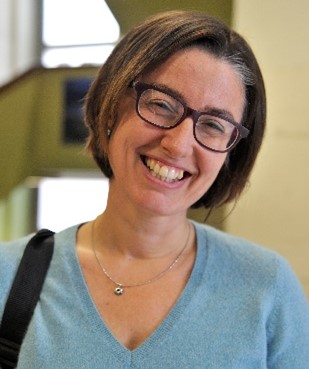
La Rana Adele
 adele.larana@univr.it
adele.larana@univr.it
 giuseppe.longo@univr.it
giuseppe.longo@univr.it
 beatrice.melodiafesta@univr.it
beatrice.melodiafesta@univr.it
 anja.meyer@univr.it
anja.meyer@univr.it

Migliorati Lorenzo
 lorenzo.migliorati@univr.it
lorenzo.migliorati@univr.it
 045802 8135
045802 8135
 maria.mori@univr.it
maria.mori@univr.it
 paolo.nitti@univr.it
paolo.nitti@univr.it
 nicola.pelizzari@univr.it
nicola.pelizzari@univr.it
 beatrice.perin@univr.it
beatrice.perin@univr.it
 michele.picotti@univr.it
michele.picotti@univr.it
 marinarighetti.mr@gmail.com
marinarighetti.mr@gmail.com
 angeloluigi.sangalli@univr.it
angeloluigi.sangalli@univr.it
 3383725508
3383725508
 marco.ubbiali@univr.it
marco.ubbiali@univr.it
 federica.zantedeschi@univr.it
federica.zantedeschi@univr.it
Study Plan
The Study Plan includes all modules, teaching and learning activities that each student will need to undertake during their time at the University.
Please select your Study Plan based on your enrollment year.
1° Year
| Modules | Credits | TAF | SSD |
|---|
2° Year activated in the A.Y. 2022/2023
| Modules | Credits | TAF | SSD |
|---|
3° Year activated in the A.Y. 2023/2024
| Modules | Credits | TAF | SSD |
|---|
4° Year It will be activated in the A.Y. 2024/2025
| Modules | Credits | TAF | SSD |
|---|
English laboratory 4th year
5° Year It will be activated in the A.Y. 2025/2026
| Modules | Credits | TAF | SSD |
|---|
| Modules | Credits | TAF | SSD |
|---|
| Modules | Credits | TAF | SSD |
|---|
| Modules | Credits | TAF | SSD |
|---|
| Modules | Credits | TAF | SSD |
|---|
English laboratory 4th year
| Modules | Credits | TAF | SSD |
|---|
| Modules | Credits | TAF | SSD |
|---|
Legend | Type of training activity (TTA)
TAF (Type of Educational Activity) All courses and activities are classified into different types of educational activities, indicated by a letter.
History of Pedagogy and Education (2021/2022)
Teaching code
4S006132
Credits
8
Language
Italian
Scientific Disciplinary Sector (SSD)
M-PED/02 - HISTORY OF PEDAGOGY AND EDUCATION
The teaching is organized as follows:
Storia della pedagogia
Storia dell'educazione
Learning outcomes
PRE-SCHOOL
1. Knowledge and Understanding
By the end of the course the student will be able to:
- know the main stages of the evolution of pedagogical thought and of the main authors who have marked the history of pedagogy, especially those who have dealt with the nursery school;
- know the evolution of different education-training modalities throughout history;
- know the main theoretical models of education of the kindergarten established over time e the consequent educational-didactic practices;
- know the characteristics of the role of the educator in different periods;
- Know organizational and evaluative techniques of the school context of the kindergarten;
- know the evolution of the consideration of the """"different"""" in the school system: from exclusion to inclusion.
2. Applying Knowledge and Understanding
At the end of the course the students will have to:
- Being able to critically compare the various educational models of the childhood school present in history, their complexity and current reality;
- be able to understand historical-pedagogical texts and to place them in time;
- be able to grasp the permanencies and absences in the current world in the evolution of pedagogical thought in order to bring out the lines of continuity that link the various eras;
- To be capable of a historical sense and of a scientific approach in reading the present and of contextualizing the various sources.
3. Making Judgments
At the end of the course the students will have to demonstrate:
- Ability to critically analyze historical educational models and to grasp the positive aspects of past and present;
- Ability to overcome prejudices and preconceptions of the present and the past;
- Possess the capacity for a scientific approach in historical-pedagogical research.
4. Communication Skills
At the end of the course the students will have to:
- Knowing how to consciously use the specific terms / concepts in their historical evolution;
- Knowing how to compose relationships in a correct way from the point of view of historical research;
- Knowing how to document what is produced in a precise and pertinent way.
5. Learning Skills
At the end of the course the students will have to:
- Being able to deal with historical research individually;
- To find historical sources and to know how to analyze them;
- To identify, in the various cultural and educational models present in history, reflections, methods and examples valid for their activity.
PRIMARY SCHOOL
1. Knowledge and Understanding
By the end of the course the student will be able to:
- Know the main stages of the evolution of pedagogical thought and of the main authors who have marked the history of pedagogy, especially those who have dealt with primary school;
- know the main theoretical models of education in the primary school established over time and the consequent educational-didactic practices that;
- know the evolution of different ways of teaching learning throughout history;
- know the characteristics of the master in different periods;
- Know organizational and evaluation techniques of the primary school context ;
- know the evolution of the consideration of the """"different"""" in the school system: from exclusion to inclusion.
2. Applying Knowledge and Understanding
By the end of the course the student will be able to:
- critically compare the various educational models of primary school present in history, their complexity and current reality;
- understand historical-pedagogical texts and to place them in time;
- grasp the permanencies and absences in the current world in the evolution of pedagogical thought in order to bring out the lines of continuity that link the various eras;
- To be capable of a historical sense and of a scientific approach in reading the present and of contextualizing the various sources.
3. Making Judgments
At the end of the course the students will have to demonstrate:
- Ability to critically analyze historical educational models and to grasp the positive aspects of past and present;
- Ability to overcome some prejudices and preconceptions of the present and the past;
- Having the capacity for a scientific approach in historical-pedagogical research.
4. Communication Skills
At the end of the course the students will have to:
- Knowing how to consciously use the specific terms / concepts in their historical evolution;
- Knowing how to compose relationships in a correct way from the point of view of historical research;
- Knowing how to document what is produced in a precise and pertinent way.
5. Learning Skills
At the end of the course the students will have to:
- Being able to deal with historical research individually;
- To find historical sources and to know how to analyze them;
- To identify, in the various cultural and educational models present in history, reflections, methods and examples valid for their activity.
Program
The course focuses on the development of pedagogy and education from a critical and historically situated understanding of the different educational proposals that emerged in modern and contemporary history.
In particular, the course is divided into two modules:
M1- Origin and development of pedagogical science.
The first module focuses on the birth and diffusion of modern and contemporary pedagogy, analysing some of the most relevant issues and significant pedagogical proposals to understand the historical evolution of the discipline, both at the national and international level (Enlightenment, Romantic, positivist, activist, idealist, libertarian, Marxist, Christian, cognitivist, and critical pedagogy).
M2- Education in the mass society. Educational challenges and responses from the twentieth century to today.
The second module will focus on the historical-critical analysis of the contributions of some authors who have marked contemporary educational theories and practices. In particular: John Dewey, Maria Montessori, José Ortega y Gasset, Antonio Gramsci, Lorenzo Milani, Paulo Freire, Ivan Illich, Mario Lodi.
Bibliography
Examination Methods
Assessment of learning will take place as follows:
A. The first module will be assessed through a written exam with open questions, designed to test the basic knowledge, the ability to reflect on these notions, and a thorough understanding of a text. (15 points)
B. For the second module, a personal paper (academic essay) must be written, based on the reading of the texts chosen by the student from those indicated in the second module. The paper will then be discussed orally in the exam. (15 points)
Type D and Type F activities
Gli 8 crediti liberi a scelta dello studente (ambito “D”) hanno lo scopo di offrire allo studente la possibilità di personalizzare il proprio percorso formativo permettendo di approfondire uno o più argomenti di particolare interesse legati al proprio percorso accademico.
Per garantire questo fine, si invitano gli studenti a rispettare le seguenti indicazioni per il completamento di tale ambito:
- almeno un’attività formativa erogata come esame universitario (con relativo voto in trentesimi) di insegnamenti compresi nei settori scientifico disciplinari previsti nel piano di Studio (oltre ai settori di M-FIL) aventi stretta congruenza con il profilo professionalizzante del corso di laurea; il Collegio didattico ha indicato che sarà possibile scegliere fra i seguenti esami della LM di Scienze pedagogiche (Epistemologia della ricerca educativa - 9 cfu M-PED/01, Ermeneutica pedagogica - 6 cfu M-PED/01, Etnografia nei contesti educativi - 9 cfu M-DEA/01, Fenomenologia della cura - 6 cfu M-FIL/03, Psicologia sociale dei gruppi e delle organizzazioni - 9 cfu M-PSI/05, Teorie e metodi dell'educazione inclusiva - 6 cfu M-PED/03) e gli esami di Geografia applicata - 6 cfu M-GGR/01 della laurea in Scienze psicologiche per la formazione e Geografia BC - 6 cfu M-GGR/01 della laurea in Beni Culturali;
- massimo 6 cfu relativi a competenze linguistiche (oltre a quelli previsti dal PdS);
- partecipando ad attività formative espressamente approvate dal CdS;
- non vengono valutate attività svolte in Erasmus non inserite nei Learning Agreement.
Altre informazioni sono reperibili nella Guida per i crediti liberi che è possibile trovare quì.
| years | Modules | TAF | Teacher |
|---|---|---|---|
| 4° 5° | Summer School: Human Sciences and Society - (HSaS) | F |
Massimiliano Badino
(Coordinator)
|
| years | Modules | TAF | Teacher |
|---|---|---|---|
| 4° 5° | Laboratorio “Calendario di Memoria Civile – Giornata della Memoria” | F |
Olivia Guaraldo
(Coordinator)
|
| years | Modules | TAF | Teacher |
|---|---|---|---|
| 4° 5° | Introduction to empathic communication for teachers in pre-school and primary school | F |
Jessica Bertolani
(Coordinator)
|
| 4° 5° | Art education in pre-school and primary school | F |
Franco Bolondi
(Coordinator)
|
| years | Modules | TAF | Teacher |
|---|---|---|---|
| 4° 5° | Neuroscience and Education: practical activities for primary schools | F |
Claudio Girelli
(Coordinator)
|
| 4° 5° | Rhythm without music. Reading, analysing and composing rhymes | F |
Claudio Girelli
(Coordinator)
|
| 4° 5° | School-family relationship in pre-school and primary school | F |
Paola Dusi
(Coordinator)
|
| years | Modules | TAF | Teacher |
|---|---|---|---|
| 4° 5° | Laboratorio italiano l2 | F |
Marina Righetti
(Coordinator)
|
| 4° 5° | Laboratorio legislazione scolastica | F |
Donato De Silvestri
(Coordinator)
|
| 4° 5° | Laboratorio per la scuola | F |
Roberta Silva
(Coordinator)
|
Career prospects
Module/Programme news
News for students
There you will find information, resources and services useful during your time at the University (Student’s exam record, your study plan on ESSE3, Distance Learning courses, university email account, office forms, administrative procedures, etc.). You can log into MyUnivr with your GIA login details: only in this way will you be able to receive notification of all the notices from your teachers and your secretariat via email and soon also via the Univr app.
Stage e Tirocini
Le attività di tirocinio indirette e dirette, per complessive 600 ore pari a 24 crediti formativi universitari, come stabilito dal D.M. 249/2010, hanno inizio nel secondo anno di corso e si svolgono secondo modalità tali da assicurare un aumento progressivo del numero dei relativi crediti formativi universitari fino all'ultimo anno.La struttura generale del tirocinio prevede:
- II annualità 100 ore di tirocinio pari a 4 CFU
- III annualità 100 ore di tirocinio pari a 4 CFU
- IV annualità 175 ore di tirocinio pari a 7 CFU
- V annualità 225 ore di tirocinio pari a 9 CFU.
Il tirocinio è seguito da insegnanti tutor coordinatori e da tutor organizzatori distaccati, rispettivamente a tempo parziale e a tempo pieno, presso il CdS. Esso prevede attività che si sviluppano secondo modalità di partecipazione periferica e modalità di partecipazione attiva: tali attività dovranno essere, adeguatamente documentate da parte dello studente e saranno supervisionate dai tutor competenti.
La frequenza alle attività di tirocinio è obbligatoria.
Documents
| Title | Info File |
|---|---|
|
|
pdf, it, 115 KB, 23/06/21 |
Progetto Dinamo corsi di formazione continua
I corsi del Progetto Dinamo sono una proposta di formazione continua per i/le docenti della scuola dell'infanzia e primaria in servizio elaborata dal Corso di Studi in Scienze della Formazione Primaria dell'Università di Verona.
La loro frequenza, in numero limitato, è aperta anche agli studenti di Scienze della formazione primaria.
L'iscrizione non comporta oneri per gli studenti.
Per i corsi di 8 ore sarà riconosciuto 1 CFU nei crediti liberi; per quelli di 16 ore i crediti liberi riconosciuti saranno 2.
Le modalità di iscrizione saranno comunicate e gestite tramite i rappresentanti degli studenti.
Documents
| Title | Info File |
|---|---|
|
|
pdf, it, 198 KB, 29/08/22 |
Gestione carriere
Linguistic training CLA
Practical information for students
Documents
| Title | Info File |
|---|---|
|
|
pdf, it, 325 KB, 02/05/23 |
|
|
pdf, it, 212 KB, 02/05/23 |
|
|
pdf, it, 131 KB, 02/05/23 |
Student mentoring
Student login and resources
Graduation
Documents
| Title | Info File |
|---|---|
|
|
pdf, it, 434 KB, 07/02/24 |
|
|
pdf, it, 418 KB, 30/11/23 |
|
|
pdf, it, 131 KB, 19/03/24 |
eTwinning
Il Corso di SFP di Verona fa parte del Gruppo Europeo per la formazione eTwinning per i futuri insegnanti – Initial Teacher Education (ITE). Seminari di presentazione della piattaforma e delle sue potenzialità, introduzione alla comunità e/o laboratori sull’uso della stessa sono proposti annualmente come parte integrante dei Laboratori di Lingua Inglese per la Professionalità Docente, e quindi come parte dell’offerta formativa; per il II anno anche con attività progettuale in lingua inglese, studente-studente o a piccoli gruppi.
Per il I anno, a partire dall’ A.A. 2017/2018 è stato realizzato con il supporto dell’USR Veneto e la collaborazione delle ambasciatrici eTwinning un incontro seminariale di presentazione della comunità e piattaforma eTwinning, come parte del Laboratorio di Lingua Inglese per la Professionalità docente. Gli studenti svolgono attività di ricerca e reperimento materiale nel portale eTwinning, studiano alcuni progetti considerati “buone pratiche” e si confrontano con una breve attività in piccolo gruppo sui primi passi di introduzione e orientamento ad un progetto eTwinning. Solitamente sono coinvolti circa un centinaio di studenti.
Per il II anno, a partire dall’A.A. 2020/2021, è stato introdotto un Laboratorio eTwinning (12 ore – 1CFU) di progettualità didattica in lingua inglese. Gli studenti svolgono attività individuali all’interno della Comunità volte a costruire una rete di partner e cogliere ogni potenzialità offerta dalla piattaforma. Inoltre, viene proposta una simulazione progettuale, in piccoli gruppi, dall’introduzione dei partner alla valutazione e disseminazione dei risultati di un progetto eTwinning. Solitamente partecipano circa un centinaio di studenti. Al termine del modulo è richiesto un portfolio digitale in lingua inglese. I futuri docenti esercitano contemporaneamente competenze linguistiche, digitali e sociali facilmente riutilizzabili nella professione futura.
Per il V anno, a partire dal AA 2022/2023, è stato introdotto, all'interno del Laboratorio di Lingua Inglese, un Laboratorio eTwinning di progettualità didattica con un altro ITE (12 ore – 1CFU).
Nell'a.a. 2022/2023 è stata attivata e realizzata una collaborazione con SFP - Università di Cagliari.
Nell'a.a. 2023/2024 si è attivata una collaborazione con l'Università di Castilla-La Mancha (Spagna).
Le attività realizzate sono state presentate durante il Coordinamento Nazionale eTwinning ITE
- a Firenze il 17 e 18 marzo 2022
- e a Lecce il 15 e 16 maggio 2023



